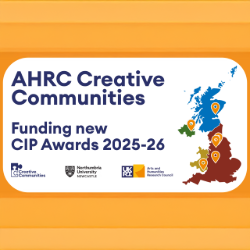-
Study
-
Undergraduate
- UCAS Clearing & Confirmation 2025
- Application Guides
- UCAS Exhibitions
- Extended Degrees
- School & College Outreach
- Information for Parents
-
Postgraduate
- Application Guide
- Postgraduate Research Degrees
- Flexible Learning
- Change Direction
- Register your Interest
-
Student Life
- Students' Union
- The Hub - Student Blog
- Accommodation
- Northumbria Sport
- Support for Students
-
Learning Experience
- Real-World Learning
- Research-enriched learning
- Graduate Futures
- The Business Clinic
- Study Abroad
-
-
International
International
Northumbria’s global footprint touches every continent across the world, through our global partnerships across 17 institutions in 10 countries, to our 277,000 strong alumni community and 150 recruitment partners – we prepare our students for the challenges of tomorrow. Discover more about how to join Northumbria’s global family or our partnerships.
View our Global Footprint-
Quick Links
- Course Search
- Undergraduate Study
- Postgraduate Study
- Information for Parents
- London Campus
- Northumbria Pathway
- Cost of Living
- Sign up for Information
-
International Students
- Information for International Students
- International Events
- Application Guide
- Entry Requirements and Education Country Agents
- Global Offices
- English Requirements
- English Language Centre
- International student support
- Cost of Living
-
International Fees and Funding
- International Undergraduate Fees
- International Undergraduate Funding
- International Masters Fees
- International Masters Funding
- International Postgraduate Research Fees
- International Postgraduate Research Funding
-
International Partners
- Agent and Representatives Network
- Global Partnerships
- Global Community
-
International Mobility
- Study Abroad
- Information for Incoming Exchange Students
-
-
Business
Business
The world is changing faster than ever before. The future is there to be won by organisations who find ways to turn today's possibilities into tomorrows competitive edge. In a connected world, collaboration can be the key to success.
More on our Business Services -
Research
Research
Northumbria is a research-rich, business-focused, professional university with a global reputation for academic quality. We conduct ground-breaking research that is responsive to the science & technology, health & well being, economic and social and arts & cultural needs for the communities
Discover more about our Research-
Quick Links
- Research Peaks of Excellence
- Academic Departments
- Research Staff
- Postgraduate Research Studentships
- Research Events
-
Research at Northumbria
- Interdisciplinary Research Themes
- Research Impact
- REF
- Partners and Collaborators
-
Support for Researchers
- Research and Innovation Services Staff
- Researcher Development and Training
- Ethics, Integrity, and Trusted Research
- University Library
- Vice Chancellors Fellows
-
Research Degrees
- Postgraduate Research Overview
- Doctoral Training Partnerships and Centres
- Academic Departments
-
Research Culture
- Research Culture
- Research Culture Action Plan
- Concordats and Commitments
-
-
About Us
-
About Northumbria
- Our Strategy
- Our Staff
- Our Schools
- Place and Partnerships
- Leadership & Governance
- University Services
- History of Northumbria
- Contact us
- Online Shop
-
-
Alumni
Alumni
Northumbria University is renowned for the calibre of its business-ready graduates. Our alumni network has over 250,000 graduates based in 178 countries worldwide in a range of sectors, our alumni are making a real impact on the world.
Our Alumni - Work For Us
What will I learn on this module?
As a Preventive Conservator you will be responsible for minimising the deterioration of artefacts in your care. In order to do so with confidence and competence you need to understand the physical and chemical characteristics of the materials from which the artefacts have been made as well as the factors that can impact on their condition.
You will be introduced to the changes that can occur over time in different materials found in museum collections. These will include paper, paintings, metals, wood, leather, ceramics, natural history specimens, wood and textiles. You will be shown images of the material in good condition followed by images of the characteristic types of degradation that can occur. A description of the physical changes that have taken place will be provided alongside the factors that have contributed to the change. The science will be used to explain the chemical changes that have taken place resulting in the degradation characteristics.
The factors that contribute to changes in materials will be considered including: those inherent to the materials, the impact of ancillary materials, relative humidity and temperature, the quality and quantity of light, insects, atmospheric pollutants, climate change, seismic activity and fire. In addition, you will be introduced to approaches to environmental management, mitigation and monitoring that can reduce the impact of environmental factors on materials including: risk assessment, museum design, display, storage, transit, integrated pest management and emergency preparedness, response and recovery as well as approaches to data collection and interpretation,
What you will learn during this module will be challenging, exciting and fundamental to your future professional practice.
How will I learn on this module?
Throughout the module your learning will be pro-active. You are required to manage your own time in a manner that enables you to read through the learning materials provided via the e learning portal (elp) and complete the formative and summative work by the deadlines provided. Every week you have the opportunity to upload any queries to the Query Discussion Board, which is used to encourage communication across the cohort and for tutors to provide formative feedback in a timely manner. You are also required to contribute to the Environmental Management Discussion Boards, which provide an opportunity for you to respond to a specific topic and discuss any issues with your fellow students. This enables you to start developing the networking skills that are essential to life-long learning, critical thinking and reflective practice. Half-way through the semester you will be given the opportunity to engage with a formative assignment that is similar to the summative assignment for which generic feedback will be provided. The complex, challenging and often conflicting issues involved in environmental management are fundamental to your professional practice and will be the focus of the 5000 word summative assignment (100% of marks).
Your learning will be underpinned by the latest research drawn together by the teaching team from their experience in professional practice and research as well as their extensive International networks.
You are also encouraged to engage with supplementary reading via the links provided
How will I be supported academically on this module?
You will be supported academically by the teaching team throughout the module. You will be provided with formative support through collaborate sessions as well as through responses to the Query Discussion Board, 1:1 tutorials and e mail enquiries. Generic feedback will be provided in response to the formative assignment. Formative work does not accrue any marks but is intended to support your academic development
A collaborate induction session will be provided at the start of the module to ensure that you are fully aware of how you will learn, how to contribute to the discussion boards, upload assignments and the deadlines for formative and summative assignments. Further collaborate sessions will be provided at a further three points in the semester.
1:1 tutorials can be arranged up to three times during the module to discuss any queries that you might have
Summative feedback and a mark will be provided in response to the summative assignment and this will contribute to your overall mark for the programme. You will receive summative feedback on the assignment within the timescale required by the university guidelines. All feedback is designed as a constructive evaluation of your performance aimed at developing your knowledge and understanding and contributing to subsequent modules as well as professional practice.
You are also encouraged to continue the development of your personal research for the final dissertation during this module using the phases of the Personal Development Plan (PDP) available in VA 7017 the Collections Care module, which you should share via e mail with the Programme Leader Jean Brown.
What will I be expected to read on this module?
All modules at Northumbria include a range of reading materials that students are expected to engage with. Online reading lists (provided after enrolment) give you access to your reading material for your modules. The Library works in partnership with your module tutors to ensure you have access to the material that you need.
What will I be expected to achieve?
Knowledge & Understanding:
1. Understand the relevance of the materials, creation, deterioration, vulnerability as well as the physical and chemical characteristics of items/collections of movable cultural heritage to their care, preventive conservation and interpretation
2. Understand, develop and implement appropriate strategies, policies and procedures for the care and preventive conservation of items/collections of movable cultural heritage
Intellectual / Professional skills & abilities:
3. The ability to formulate balanced judgements when considering incomplete or ambiguous data that are communicated clearly to both specialist and non-specialist audiences
4. Demonstrate the ability to take responsibility for your own learning by: selecting the knowledge required to complete assignments from resources available on the elp; identifying appropriate additional resources of knowledge; working on independent and group projects; considering the views of tutors and peers in the development or enhancement of your own work; making constructive use of feedback; determining the focus for the dissertation; shaping their assignments; securing the placement offer and assignment topic and identifying your own learning needs
Personal Values Attributes (Global / Cultural awareness, Ethics, Curiosity)
5. Demonstrate enthusiasm, curiosity, integrity, ethical and professional awareness in all aspects of work, communication and engagement with others
How will I be assessed?
Generic formative feedback will be provided for the formative assignment. Additional formative support will be provided via the collaborate sessions, 1:1 tutorials, queries raised via the Discussion Boards as well to e mails sent to the module tutor. Formative support will also be provided through the collaborate induction session in relation to the summative assessment.
The summative assessment will be a 5000 word assignment and will constitute 100% of the module mark. The assignment will require you to demonstrate the knowledge and skills developed throughout the module in the application of environmental theory to practice
Pre-requisite(s)
N/A
Co-requisite(s)
N/A
Module abstract
This module introduces you to the causes of change in a range of materials found in museum collections including: paper, metals, wood, leather, ceramics, natural history specimens, wood and textiles. You will learn about the physical and chemical changes that can occur including the impact of inherent and ancillary materials, relative humidity and temperature, the quality and quantity of light, insects, atmospheric pollutants, climate change, seismic activity and fire. In addition. You will be introduced to environmental management, mitigation and monitoring that can reduce the impact of environmental factors on materials including: risk assessment, museum design, display, storage, transit, integrated pest management and emergency preparedness, response and recovery as well as approaches to data collection and interpretation. This challenging module has been designed to contextualise your understanding of why materials degrade and what can be done to minimise and manage those risks in professional practice
Course info
Credits 30
Level of Study Postgraduate
Mode of Study 2 years Part Time (Distance Learning)
1 other options available
Department Arts
Location City Campus, Northumbria University
City Newcastle
All information is accurate at the time of sharing.
Full time Courses are primarily delivered via on-campus face to face learning but could include elements of online learning. Most courses run as planned and as promoted on our website and via our marketing materials, but if there are any substantial changes (as determined by the Competition and Markets Authority) to a course or there is the potential that course may be withdrawn, we will notify all affected applicants as soon as possible with advice and guidance regarding their options. It is also important to be aware that optional modules listed on course pages may be subject to change depending on uptake numbers each year.
Contact time is subject to increase or decrease in line with possible restrictions imposed by the government or the University in the interest of maintaining the health and safety and wellbeing of students, staff, and visitors if this is deemed necessary in future.
Useful Links
Find out about our distinctive approach at
www.northumbria.ac.uk/exp
Admissions Terms and Conditions
northumbria.ac.uk/terms
Fees and Funding
northumbria.ac.uk/fees
Admissions Policy
northumbria.ac.uk/adpolicy
Admissions Complaints Policy
northumbria.ac.uk/complaints












